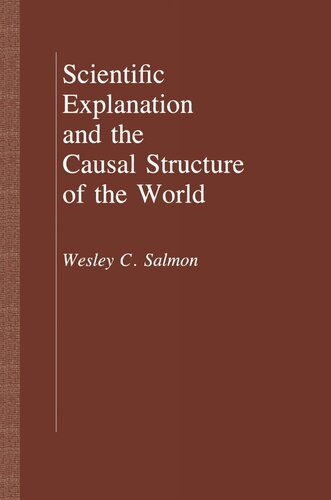

Most ebook files are in PDF format, so you can easily read them using various software such as Foxit Reader or directly on the Google Chrome browser.
Some ebook files are released by publishers in other formats such as .awz, .mobi, .epub, .fb2, etc. You may need to install specific software to read these formats on mobile/PC, such as Calibre.
Please read the tutorial at this link: https://ebookbell.com/faq
We offer FREE conversion to the popular formats you request; however, this may take some time. Therefore, right after payment, please email us, and we will try to provide the service as quickly as possible.
For some exceptional file formats or broken links (if any), please refrain from opening any disputes. Instead, email us first, and we will try to assist within a maximum of 6 hours.
EbookBell Team

4.8
34 reviewsThe philosophical theory of scientific explanation proposed here involves a radically new treatment of causality that accords with the pervasively statistical character of contemporary science. Wesley C. Salmon describes three fundamental conceptions of scientific explanation--the epistemic, modal, and ontic. He argues that the prevailing view (a version of the epistemic conception) is untenable and that the modal conception is scientifically out-dated. Significantly revising aspects of his earlier work, he defends a causal/mechanical theory that is a version of the ontic conception.
Professor Salmon's theory furnishes a robust argument for scientific realism akin to the argument that convinced twentieth-century physical scientists of the existence of atoms and molecules. To do justice to such notions as irreducibly statistical laws and statistical explanation, he offers a novel account of physical randomness. The transition from the "reviewed view" of scientific explanation (that explanations are arguments) to the causal/mechanical model requires fundamental rethinking of basic explanatory concepts.